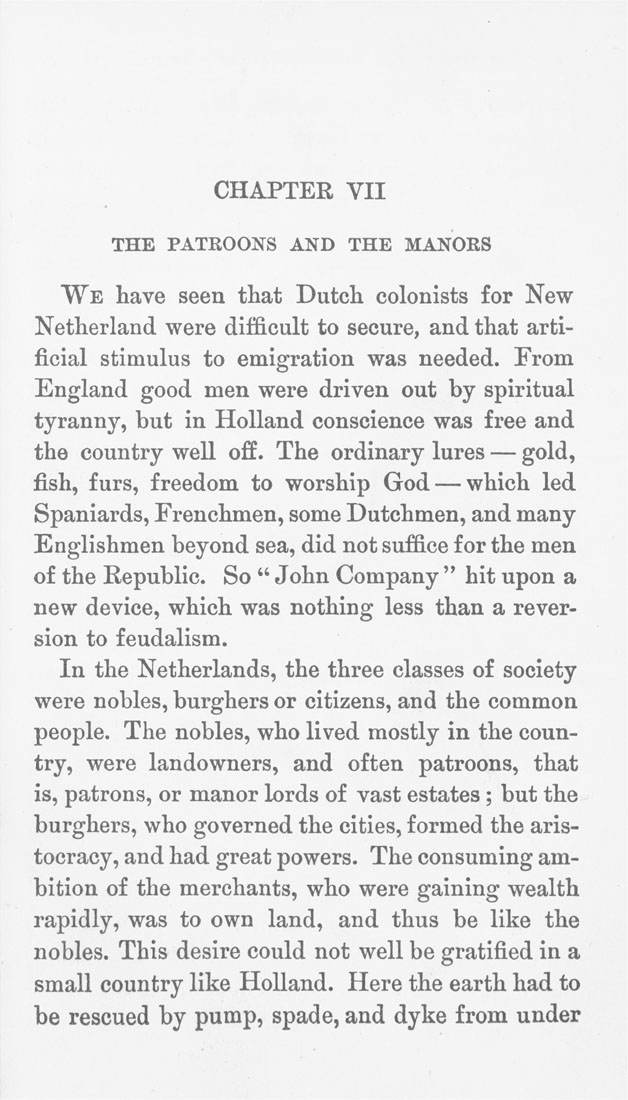CHAPTER VII
THE PATROONS AND THE MANORS
We have seen that Dutch colonists for New
Netherland were difficult to secure, and that arti¬
ficial stimulus to emigration was needed. From
England good men were driven out by spiritual
tyranny, but in Holland conscience was free and
the country well off. The ordinary lures — gold,
fish, furs, freedom to worship God — which led
Spaniards, Frenchmen, some Dutchmen, and many
Englishmen beyond sea, did not suffice for the men
of the Republic. So " John Company " hit upon a
new device, which was nothing less than a rever¬
sion to feudalism.
In the Netherlands, the three classes of society
were nobles, burghers or citizens, and the common
people. The nobles, who lived mostly in the coun¬
try, were landowners, and often patroons, that
is, patrons, or manor lords of vast estates ; but the
burghers, who governed the cities, formed the aris¬
tocracy, and had great powers. The consuming am¬
bition of the merchants, who were gaining wealth
rapidly, was to own land, and thus be like the
nobles. This desire could not well be gratified in a
small country like Holland. Here the earth had to
be rescued by pump, spade, and dyke from under
|








